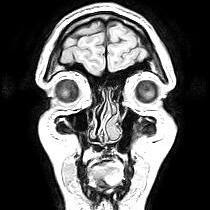The situation in Malaga is going to be a shitshow pretty soon. There’s basically no water there anymore. This summer, hotels will be able to fill their swimming pools, but residential buildings will be banned from doing so. There are talks of bringing water in boats from Murcia. People that got rich planting avocados and mangos saw their crops fall 85 % last year. And of course there are already water consumption restrictions, with water flows restricted at night.
But at the same time there are talks of beating all previous tourism records. This is insanity.
Tourist town depending on tourists is pissed at too many tourists.
What do these towns expect to happen if the traffic goes away?
Tourism often doesn’t benefit the people living in these towns. The hotels and Airbnbs are usually owned by outsiders and big companies. The people living and working in a tourist town often don’t see much benefits, besides that their town is now very expensive, regular people are forced to move out, making it harder to have a regular store, because all your customers are now tourists. If too much of a town serves tourism it’s typically bad for the regular inhabitants.
I wish more tourists would understand this, as it also improves the experience as a tourist to not have too many tourists in a town, but somehow they still flock to these tourist traps.
So then how do you decide which tourist gets to go to keep it at an “acceptable” level? That’s the part that everyone always leaves out when they say “we’ll reduce tourism but not eliminate it”. What happens then ultimately is only the rich get to tour places and everyone else is restricted to what, their home town that they can’t leave?
It would already help a lot if they would spread out more. Malaga is not the only town in southern Spain, nor does it have any unique sights you should not miss. But that would require tourists to make an effort to seek out the less well known places and not just hop on a plane because there is a cheap flight offer.
You limit the hotel licenses. You then go hard on hotel inspections and revoke licenses or don’t renew it from hotels that aren’t up to code/standard. That way the available hotel rooms will go down. The number of licenses is limited by hotel category. That way you ensure a healthy mix of available room types and can still have all kinds of tourists in town. There won’t be an issue with “big chains snatching up all the licenses”.
Then for a time only people with a valid reservation are allowed to enter. You place checkpoints at the most common points of entry. That way you limit the number of potential tourists by limiting the available hotel rooms. It would also fix the issue of unregistered AirBnBs. It won’t be perfect but you don’t want to kill tourism just reduce it.
Locals and family of locals would be exempted from the limit. You just put some system in place to apply for that exemption for family. Since the checkpoints are only temporary (maybe around 6 months) the impact on locals and their family isn’t too bad before it goes back to normal.
There will be a lot of media coverage about the closure and fewer tourists will come. The lifting of the checkpoints will barely make the news so things won’t go back to how it was before. And the limit on hotel licenses is still in place, so the available rooms are limited anyhow. Naturally reducing tourism because fewer peope can book a room.
That’s a different problem though. Addressable via tax and ownership laws.
These folks are just pissed at the volume. If you limit volume the only easy way to maintain the tax base is to move upscale. Pricing residents out of local shops. End up with a Monaco type situation.
Yeah tourism has to cool down. Spain, Italy and france are bursting.
Isn’t it everywhere? I think this is another strong indicator of how we need new cities that are fostered a little less to generating profit and instead to generating quality value for the people living there. If so, tourism would change automatically.
Oh absolutely and probably also not a hot take. Ban AirBnb and vacation flats in cities. The Prague city centre during covid was a ghost town, because of all the AirBnbs in the city. Regular citizens get priced out and the vacancy rate is high.
I’m not even sure if AirBnb per se is a problem. Depends on the time frame, we’re talking about. If they are used for below two weeks they are just better hotels, but as a multiple months accommodation for nomads interested in being part of the city and making meaningful connections - why not?
Oh please, rents were increasing higher than wages for decades now, taking even bigger chunk of the pay of regular people. And Airbnb and Booking in tourist/business hotspots are to blame to a large extent for that.
That’s at least an easy explanation, but it totally fails at answering the question as to why it became so much more beneficial to just own money instead of selling work for it in the recent decades. AirBnB has nothing to do with that.
But building new cities is expensive and takes a long time. You can reduce tourism faster.
Touristi ite domum
I get the anger, protests and other pressure on politicians might change something but those stickers won´t help.
Strongly regulating the housing market would help. And these stickers could help pressing some politicians in the right direction.
Honestly, let me know before I book my flight and you’ll never see me. But planning your holiday, buying all the tickets, booking several day’s worth of accommodation and traveling there is not something I can undo when I first bump into this sticker on my first walk.
And I never even travelled abroad for holidays, I’m just picturing the situation from the tourist’s point of view.
Agreed, the stickers are not constructive.
This is the best summary I could come up with:
Fed-up residents have put hostile messages calling for tourists to “go home” on the outside of buildings around the centre of Malaga.
The notes first appeared after a bar owner, known as Dani Drunko, suggested the idea of putting a twist on the apartment signs on buildings with some different phrases.
Mr Drunko, who owns a bar on Ramón Franquelo Street, told Malaga news site Sur that he was kicked out of the house he had been living in for 10 years after he was not allowed to renew his contract because it was being adapted for tourist rentals.
After initiating the idea of adding stickers to the apartments, Mr Drunko said the community got involved in a “very creative” way, but admitted “this has got out of hand”.
The provincial secretary of the PSOE, Dani Pérez, encouraged the idea as he wrote on X: “Before this was Centro, as this sticker next to several tourist flats says.
But local lawyer Juan Luis Gomez criticised the campaign, adding: “The same people who are against tourism then want work, as if we depended here for our livelihoods on the aerospace industry.
The original article contains 335 words, the summary contains 190 words. Saved 43%. I’m a bot and I’m open source!
We are spending our vacations in our adopted country every year and Málaga is by far one of the most tourist-y places in spain, and not a great example of how amazing this country is unless you take the train to the local towns.
Every restaurant/bar etc. staff speak English, Dutch, German, French, there are cruise ships that dock there so its a huge influx of tourists for lunch/dinner times. It felt like a giant strip mall, with very little personality.
Gentrification (?) is happening quickly here in the tourist hot spots and we see a lot of locals being pushed out of town centers because of costs & availability.
I was dragged there a couple years ago for family and it was a nightmare, why anyone would willingly choose to go there I have no idea.









